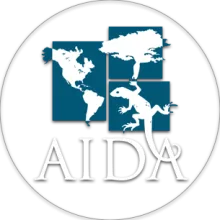Juana[1] is suffering from respiratory problems and her sister has asthma. They live in La Oroya, a small city in Peru’s central Andes. It was years before Juana had access to the information she needed to understand the source of their illnesses: toxic contamination from the Doe Run metal smelter.
Although there has been some progress, Juana and the rest of the people affected by the contaminated air in La Oroya still do not receive the specialized and comprehensive medical care they need.
In cases like La Oroya, victims don’t always find justice in their own countries and must raise their demands to an international level. One space to do so is the Inter-American Commission on Human Rights public hearings, held twice a year in March and October.
AIDA has actively participated in case hearings on specific human rights violations, such as in La Oroya. But we have also requested and received thematic hearings on problems facing Latin American countries or the region as a whole. We have participated alongside and in collaboration with other civil society organizations.
"By providing information and arguments, we encourage the Commission to make visible worrisome situations of human rights violations caused by environmental degradation, and to take actions to stop them: develop standards, monitor cases, and make recommendations to States," explained María José Veramendi Villa, senior attorney at AIDA.
Last October AIDA and partner organizations called the Commission’s attention to mining and energy projects that force displacement of people and communities in Colombia. We also requested that the Commission develop standards governing displacement caused by large infrastructure projects, and insisted that the Colombian government properly respond to the victims.
"These hearings are the most comprehensive and flexible tool to ensure the Commission receives information about the issues that are troubling to the region. There are so many worries, and so many organizations wanting to be heard, that there is not enough time. The hearings are an indicator of the most relevant issues of the times and, through them, civil society develops an agenda of work," said Ana María Mondragón, attorney at AIDA.
AIDA returned this month to Washington, D.C., seat of the Commission, to participate in a thematic hearing that brings to the table a current and deepening concern: the predominant role corporations are playing in the violation of human rights in Latin America.
One example is the case of Máxima Acuña Chaupe in Cajamarca, Peru. The Yanacocha mining company is interested in developing a project on her territory and, in order to do so, accused her of usurping land. Although a judicial court ruling established Máxima’s innocence, she and her family live in fear that the company may again try to take away their home.
The case of the Chaupe family, and many others in the region, demonstrates the importance of bringing this issue before the Commission.
"During the hearing, we presented information to fuel debate about opportunities for the Commission to create, implement and strengthen international standards on business and human rights," explained Veramendi Villa. "By doing so, the Commission can urge States to control and/or sanction corporations – like Doe Run Peru and Yanacocha – whose activities harm the environment and violate human rights and ensure access to justice for its victims."
[1] Name has been changed to protect confidentiality.
AIDA Staff

Founded in 1998, AIDA is a nonprofit environmental law organization that works across international borders to defend threatened ecosystems and the human communities that depend on them.
